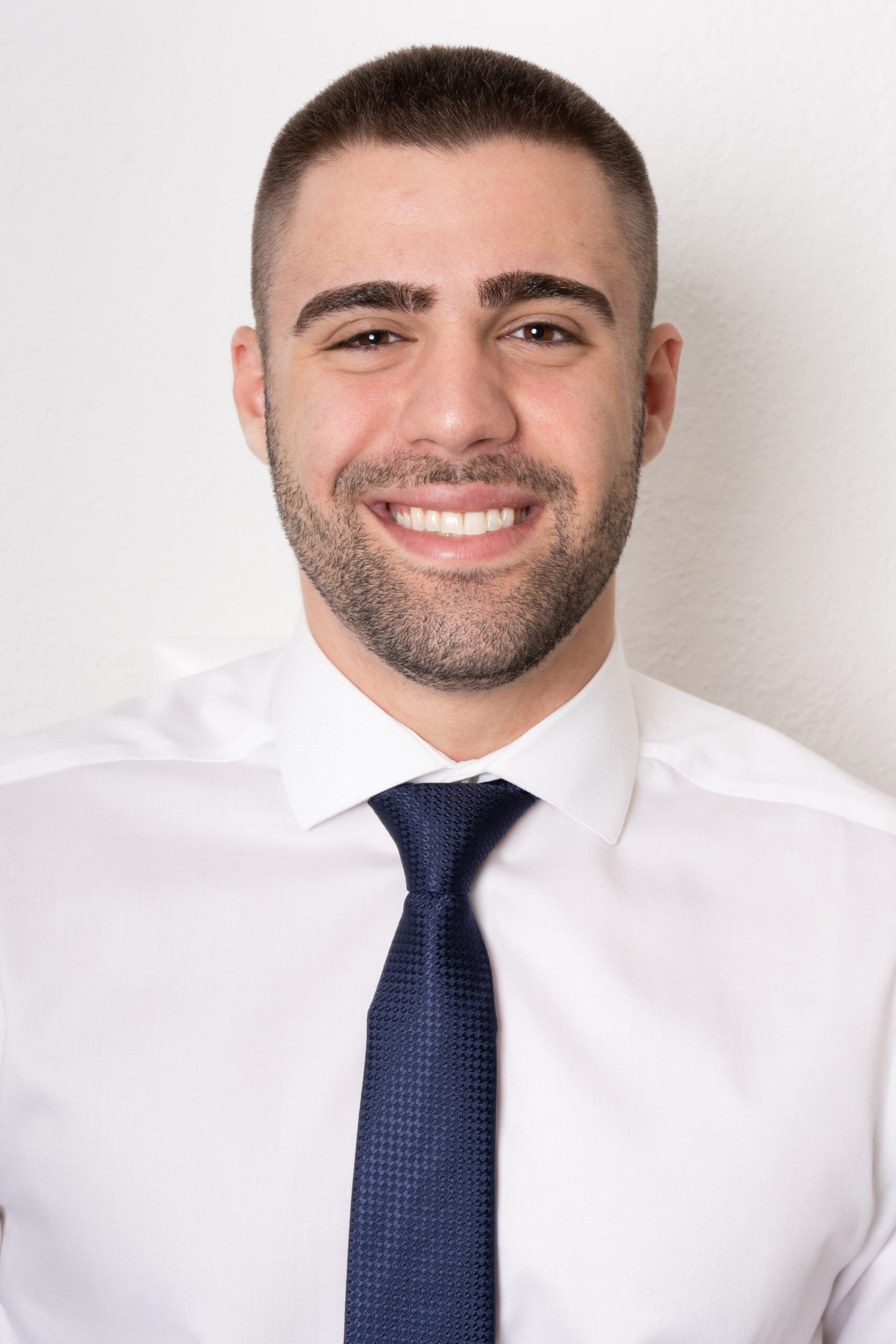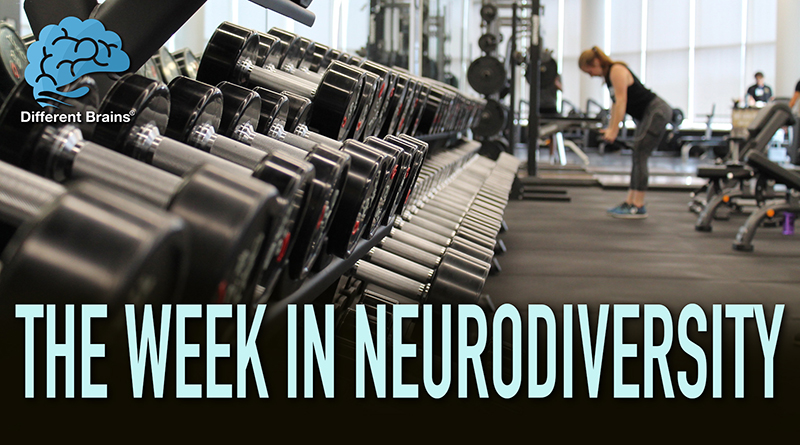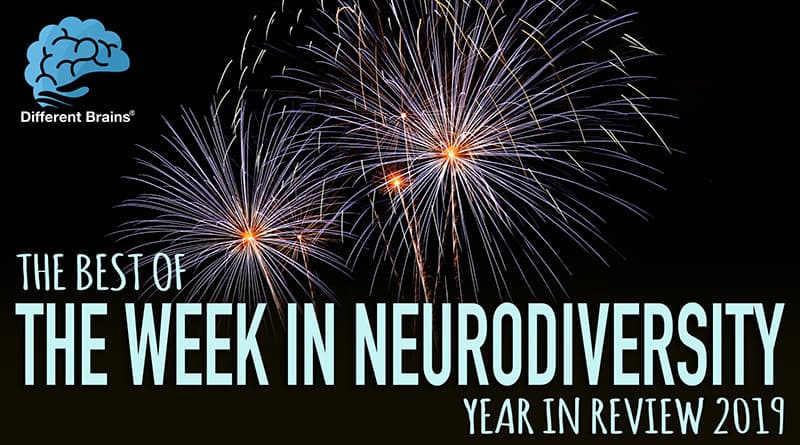ADHD & Focus with Mario Armstrong | ADHD Power Tools w/ Ali Idriss & Brooke Schnittman

(19 mins) In this episode of ADHD Power Tools, Ali, Brooke, and special guest Mario Armstrong discuss ADHD and how to focus on achieving your goals!
Mario Armstrong, our guest on this episode, is a two-time Emmy Award-Winner, Entrepreneur, TV Host, and Public Speaker. Mario focuses on positivity, motivation, and tactical advice to inspire people to take action pursuing their personal and professional goals, dreams, and passions.
Brooke Schnittman, MA, PCC, BCC is a certified coach who works with children, students, teens, adults, and parents with or without ADHD. She has been nominated for multiple awards including “Best In Show Community” and ”Advocating For Another.” She is the creator of What’s Next and ADHDEdCamp.
Ali Idriss is a Different Brains intern and ADHD self-advocate. He aspires to share his journey and help others with the tools that have allowed him to overcome many of the challenges along the way, as he co-hosts ADHD Power Tools and conducts research on college students with ADHD. Ali has completed his bachelor’s in Biological Sciences at Florida Atlantic University and is currently completing his second bachelor’s in Neuroscience and Behavior at Florida Atlantic University. He is also an Emergency Medical Technician and is aspiring to become a physician.
For more on Mario and his work, visit: https://www.marioarmstrong.com/
For more on Brooke and her work, visit: https://www.coachingwithbrooke.com/
FULL TRANSCRIPTION:
ALI IDRISS (AI): Today we as usual, have Brooke Schnittman with us, but we have a special guest today, the great and powerful Mario Armstrong. How are we doing Mario?
MARIO ARMSTRONG (MA): Hey, thanks so much for having me on. I’m excited to be here really, ever since Brooke hit me up and was like, hey, what do you think about this podcast? There’s a whole story behind that. And it’s a great one. But yeah, I’m excited to be here. Thanks for having me.
AI: Of course, of course, It’s good seeing you. Um, Mario, can you properly introduce yourself? Tell us a little bit about yourself.
MA: Yeah, I guess I would say that. My name is Mario Armstrong. I’m a husband, a father of one Christopher’s our son, my wife and I went in business together. Her she would say begrudgingly for her. But I convinced her eventually. And she decided to come on board and is taking the company to kind of new heights. But before that happened, we hit rock bottom together, and no safety net, nothing there. I mean, we did have 401k that we maxed out and all these other things. And basically, we were trying to create our own production company, our own business, where we would create content that would motivate empower entrepreneurs, creators, and people that are really just looking to get more out of life, they know there’s something else there and they need some help, advice and direction. We are really wanting to be that source for that. And what we went bankrupt, pursuing the dream make a laugh about it. Now it wasn’t very difficult at the time, my mother in law was paying for my groceries for our groceries, which was really rough for me to swallow. Because this was like the idea that I created for us to go after, while we’re raising our son. And I was looking for change in the so trying to find change to go to the Coinstar machines to get money to basically become gas money to take us to our next opportunity. And years later, we stayed with it and created something called Never Settle, because we kind of proved to ourselves that we were pretty consistent and resilient. We got back up and kept fighting for the dream, and started creating our shows and started doing stuff that we were doing and ended up winning a couple of Emmys for those shows that we created on our own, even against other people telling us we would never get those shows made or we would never get them funded. And so that’s kind of like my life story. I’m the guy that kind of grew up always wanting to root for the underdog, because I’ve always felt like the underdog. And I didn’t do well in school. And you know, that could be because I have ADHD. We don’t know if I do or not. I suspect I probably do. And because I don’t have a lot of focus for a long amount of time.
BROOKE SCHNITTMAN (BS): Yeah, yeah. And I’ve heard so much in what you were just saying about like that social justice issue being a do gooder for other people. Yes, you started off with not having the means and going through a lot of adversity, but at the same time. Regardless, I think based on your suspected ADHD and who you are at the core, you would still be a do gooder and help other people.
MA: It’s important, it’s important to the core of what we do. You know, we don’t think about how do we make money? First, we think about how do we make impact first, that’s a really, when you’re in business, you have to still be very smart about making financial decisions. But a lot of we just don’t believe in making the decision to do something based solely on the finance, it’s got to be based off the impact and intention, the intentionality first. And obviously, we’re going to try to do things that are in spaces where if they do well, everyone should be able to win financially. But that’s not the main reason for doing it. And so, you know, today, you can catch me on the Today Show talking about technology and entrepreneurship. I’m in partnership with Daymond John from Shark Tank, and we do a lot of things together in a public speaking space. And so and then a lot of brands hire and work with our company, both to create content, but also we pitch brands to sponsor our content. And based off of being able to do that we’ve done that pretty well to fund our own ideas. We also now teach people how they can actually get brand sponsorships for their ideas and their events or their podcasts as well.
BS: You took that resilience in yourself and your wife. And now you essentially teach that. So you started from nothing. You were motivated. You had this story. You had this challenge. You overcame it. And now you’re the expert, empowering other people. I love that.
AI: Mario, I want to ask you, you bring up you deliver inspiration and advice just to keep propelling harness your passion, stay driven. How do you think you can relate that? Obviously, were ADHD power tools, we talked about ADHD? How can you relate that to the ADHD you brought up earlier that you think you’re suspected to have?
MA: I think the way to relate that would be to try to do motivation in small chunks. I think a lot often I feel that we overwhelm ourselves with the things that we are capable of doing because we all have immense human potential. And so it’s reflected in our to do lists every day. Like all you got to do is ask somebody for their to do list and It’s like, oh, you’re gonna get all 20 of those things done today.
BS: Like a CVS receipt.
MA: That’s exactly what but I just bought one thing. It’s okay. This is how they all come out like it’s. So it’s like, but I only got one thing done. Look at all the things on the receipt…
BS: Look at all the little things. Yeah,
MA: I think you know, I think I think to to focus, and I really don’t like the word focus. And it’s funny that I just said it, because I really want to kind of say why I don’t like it. We use that word a lot. And I think we, it’s become over utilized. Number one, in my opinion. Number two, it already makes the assumption that you are ready aren’t trying to concentrate. And I think that that’s just wrong. Everyone’s already trying to concentrate, they’re already trying to deliver their best, they don’t need more focus what people in my opinion need is more opportunity. And so I think that one of the ways to create that is to do things in smaller chunks, so that the pie isn’t overwhelming. And because we can create a to do list of all these things, we think we can accomplish it. But if all of you are really being honest with ourselves, when we look at it, we feel kind of deflated, that we didn’t get all those things done at the end of the day. And then we start the next day trying to pick up off the things that we didn’t get done, and then adding on to on top of that. So I believe that if we can do things in small chunks, we can really give our best potential in small increments. And over time, in the aggregate, you’ll see big results.
BS: Absolutely, that’s like the 1% rule that we were talking about. Ali in an earlier episode, people have such a hard time understanding that concepts like that that small child could literally be just by the book, or right go to the coffee shop.
MA: Because we’re so conditioned that rewards have to be big. And if we could reframe the reward, and this is a really important point on how we try to move, and even these, like sneakers and things that you see kind of like behind me, these sneakers and stuff that are that are all around me. They’re actually done on purpose. Like I’m a sneaker head, yes, I love sneakers, that’s part of my style and who I am. But there’s a more strategic reason behind it, I actually attach to I have it right here, where my head, I actually attach what I call, give me a second, I’ll find him. I call a tangible affirmations. Tangible affirmations are like so I have these cards where I’ll put a card and associate that with a thing I’ve bought that I would like to wear, I can’t wear that thing until I reach this goal. So in this case, the shoes will sit on this rack behind me every single day. But this is for the distribution partner, until I get that distribution partner, I cannot wear those pair of shoes. So it keeps me kind of like attentive. And I see this every day, some of these things will sit for a year, by the way. Like you can’t give up. Collecting does. So I call them tangible affirmations. To me, I’m a visual, I need things that I can tangibly touch and see and feel. So I buy my reward in advance, but I can’t use it or implemented the goal.
BS: That’s huge. I haven’t heard of that. I’ve heard of the reward being attached to the action, but then doing the reward afterwards. But this is right in front of you and touch it, you want to see it. And you can’t look
MA: at this and look at some of this stuff is seasonal. And so you’re like you’re buying things that are like going to be worn in the spring and you’re like, dammit, I’m not gonna hit this spring. That’s gonna have to wait on
BS: willpower. I would take those shoes and be like, I’m the one who came up with this reward. Oh, well.
MA: You know, I’ve often wanted to cheat myself, but I would feel so lame for doing so I have a pair of shoes that were the first pair of shoes that I bought when we first decided to go out on our own and do our show. It took two years before I can they were the shoes that I would wear on the first episode. It took two years before I could wear those shoes. Wow. So yeah, things I could accomplish in three months. Now, you know? To the point, you know, one of the things that we do is that we do every Sunday we do my three wins. And so you go around the family and you go around your friends or via text message or whatever. And just mentioned the three things that you did well that week, and people constantly are looking for the big win. And it’s like no, did you send that one email that you were hesitant to send? Did you get that exactly exam done that you were really sweating about doing? Did you take your kid to go you know, get the ice cream cone like was that a great moment or not like that was a win. So I think if we can reframe our wins, we start to feel more progress, more concern consistently, and therefore, we actually also reduce stress. And I think we get to the bigger wins, just because we’re getting the smaller wins along the way and respecting and appreciating them.
BS: I love that I think it’s so hard for people to come up with a win. Like you said, they don’t see small things. As a win. There’s so gap focus and like, like our brains are wired to think negatively. So reframing like you said, and starting with the positive and starting with the win, can help you frame your day.
MA: We overestimate what we can get done in a year and underestimate what we can get done today.
BS: What did you do with the 25 hours on Sunday, were you more productive Mario? Or did you wait an hour?
MA: Oh, right. Because of the time? No, I just I just waited.
BS: You’re like I got this hour, maybe I’ll sleep later. Or I’ll just wait. We all have to say it’s so funny. It is so funny. But I love the small chunks.
AI: Yeah, and it’s just the humility humility to set the bar low enough for yourself. Just that not just slightly getting better on a continuous basis slightly is a key term emphasis on that. That cliche saying comparing to you’re comparing yourself to who you were yesterday. Right? Right. It’s actually you actually really got to you got to live by you know, embrace who you are your experiences. And there’s going to be those days, I want to talk about like velocity versus acceleration.
MA: Ooh, okay.
AI: Beautiful. Say you’re in the med student
BS: We’ve got a med student here.
MA: Yeah, Ali Let’s go. I love it. This is great.
AI: Velocity being speed and obviously acceleration. You say you’re in a plane, and it’s going 650 miles an hour, roughly, right? You’re not feel you don’t feel that view, you only feel it when it slows down or speeds up takes off lands that you only feel when the speed changes. So in life, velocity means very little bit acceleration is everything. So happiness is only interesting when it’s Chuck juxtaposed with sadness. And I think it’s really important to understand that, yeah, have the humility, set the bar low enough for yourself, but you’re going to have those, those weeks or days that are going to be a little bit tough. And, you know, that is also what makes you slightly better on a continuous basis.
MA: That’s beautiful. That’s great. It’s a great visual, it’s so true. We live in the life of duality, like that’s what we live in, there’s plus and minus, there’s, you know, black and white, there is risk and reward, there’s, you know, so there’s there is that duality of happiness and sadness. And so understanding that infrastructure is really important. Because even what both of you are really also saying to me, it’s like, when you understand that our brains of how we’ve evolved as humans work in the way that they do to protect us and to look out for things, then you know how to hack it. Because when it happens, and you’re like, Oh, that makes me nervous, I don’t think I should do it, you’re like, Oh, that’s right. That’s your job. Um, I’m, I’m fearful of going into speaking in front of this audience, but it’s not a lion, that it’s really going to kill me. But that’s how my brain reacts. That I feel like it’s life or death. And it really feels real to me. So and that’s a real space and a real emotion that people we have to understand and let them have that. But then we what we are trying to teach everyone to understand is like, Yeah, but that’s your initial reaction that your body is going through to keep you safe. Your brains is saying something you’re doing feels uncomfortable, and we don’t like that. So our job is to make sure you’re comfortable. But that doesn’t really help us when we’re trying to grow personally. And that’s where the difference is great for when it’s dark at night, and we’re in an alley, and we don’t understand what’s going on. And we hear something perfect for that we laser in really quick, and we can see everything and so yeah, but you know, whether it’s about going after our goals, we start letting a whole bunch of other ideas get into our head that slow us down from potential of action. And so I love this idea of, you know, velocity and acceleration, because what that also speaks to is movement matters. Yes, and movement that you may not feel, and movement that you’re actually feeling because of the adjustment that’s going on. Maybe someone said no to something. So now you feel like you got kicked back. Maybe someone said yes. So now you feel like running faster forward. But the point is movement is critical and kind of reminds me of the difference between efficiency and effectiveness and how people use those words interchangeably, but it’s the wrong usage. And what we’re really shooting for, in my opinion, is recruiting to be more effective. You know, you don’t want to do things a process over and over and do it better. That would be efficiency, but I think as human beings, we want to make sure that we’re doing the right process at the right A time and be more effective with who we are and what we’re doing.
BS: That’s reminds me so much of like RSD of emotional regulation, the fight to freeze fight and flight that we were talking about ally. And I think going back to your why right on, like when you get tripped up and you get the “no”s, right? You’ll get a lot of “no”s, right?
MA: If you’re doing something great.
BS: Exactly, exactly. I love it. I love it and look at you, you are a success story. And like, this is just the beginning of your story in Mario.
MA: And we still get “no”s — it’s so important that people that you visualize making it, get this, I was this blew my mind away. So I get this access be being at these stages and going to these shows and conferences and public speaking. So I get to meet a lot of people, which is great. And I’m not saying this as a flex. I’m saying this because I’m a student behind the scenes, and then I want to share this thing with you that I think can really help you all break through. And that is I get into the Today Show and I’m in these green rooms. Well, you got all kinds of celebrities and different types of people and psychologists and authors and finance experts and people coming through there all the time. I my segments usually done by like 835, I’m hanging out in there till 10am until they actually shut the show down. And everyone’s always like, why is Mario still here. And it’s like, because I’m soaking up.
BS: And working.
MA: Yeah, just learning and watching and observing. And one of the things that I’ve found that has been told to me over and over by people that I look to as successful. So this goes to any of you that look to people that are successful in your eyes, what they don’t want you to really know. And the ultimate secret is, they don’t know what they’re doing. They’re making it up as they go along. Eventually, they learn some things from what they didn’t know. But they made up as they went through it. And now they start to have some expertise. But the minute they jump into a new field, or the minute they try something that’s out say they’re a finance expert, now they’re doing something in health. That’s a whole new industry. That’s not just transfer skills, that there’s some things but not everything, so that you can start having that impostor syndrome and start thinking like who am I to be this? And so the point I’m trying to say is take the veil off everybody, because guess what Mario doesn’t know any more than you do what he’s about to do next. He’s trying, and he’s learning as he’s doing. But the only thing I can tell you is that if you don’t do, you will never know.
BS: Exactly. And there you have it, like just do it. That Nike symbol, right finds you.
MA: Yeah, and just stay true. And the way to just do it, in my opinion, is to just stay curious. If you treat your ideas like a hypothesis, and not like it’s got to work, oh, this thing has to happen. And you get that kind of attachment and energy going. That’s that’s tough. And I only know because I’ve been on the other side of acting like that. And I mean, I just had a conversation with, we called our CEO Nicole. And we kind of just butted heads on on something and it’s rare for us because we often don’t do that. And we butted heads and I was like, It’s my energy. I put too much attachment into this thing happening a certain way that now it’s bringing this angst into this. I gotta step out my bed. i Let’s regroup tomorrow. This isn’t, you know, so it was a tough one.
BS: Yeah, there’s this acronym. Ah, I’ll say it. And then I’ll say the acronym high attachments, low connection. So if you are so attached to that outcome, you have this like, it’s hard to connect on the way through it. So not being so attached to your outcome. And just it’s a vision. It’s a goal, like it doesn’t have to be what you’re saying it’s going to be because things change along the way.

Ali Idriss is a Different Brains intern and ADHD self-advocate. He aspires to share his journey and help others with the tools that have allowed him to overcome many of the challenges along the way, as he co-hosts ADHD Power Tools and conducts research on college students with ADHD. Ali has completed his bachelor’s in Biological Sciences at Florida Atlantic University and is currently completing his second bachelor’s in Neuroscience and Behavior at Florida Atlantic University. He is also an Emergency Medical Technician and is aspiring to become a physician.




